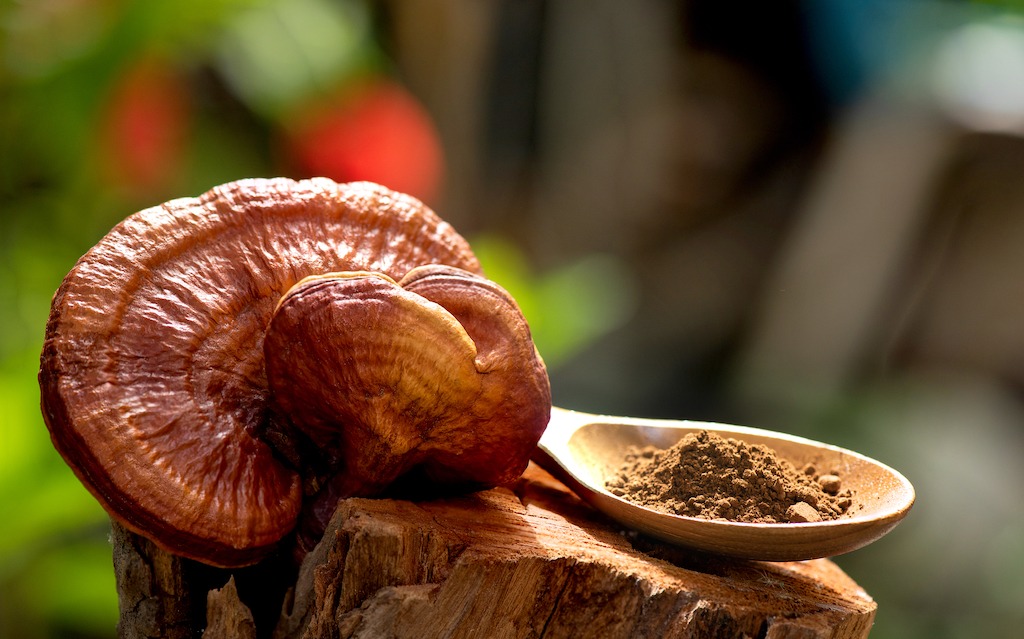Allergies are a common ailment that affects millions of people worldwide. With the increased prevalence of allergies in recent years, there has been a surge in demand for effective and natural remedies to alleviate symptoms. The Reishi mushroom has emerged as a powerful solution among the various options. In this article, we explore the potential of Reishi mushroom for allergies, how it works, and the benefits it offers in managing allergies.
What is Reishi Mushroom?
Reishi mushroom (Ganoderma lucidum), also known as Lingzhi mushroom, has been used in traditional Chinese medicine for centuries due to its numerous health benefits. This fungus, typically found in Asia, has a red-varnished and kidney-shaped cap. Reishi mushroom is known for its immunomodulatory, anti-inflammatory, and anti-oxidative properties, making it a popular choice for maintaining overall health.
Reishi Mushroom for Allergies
The use of Reishi for allergies is supported by several scientific studies, which demonstrate its effectiveness in combating a wide range of allergy symptoms. This powerful fungus contains bioactive compounds such as polysaccharides, triterpenes, and proteins, which help regulate the immune response and reduce inflammation.
Common Allergy Symptoms
Allergies occur when the immune system overreacts to a substance, known as an allergen, that is usually harmless to most people. Allergy symptoms can vary widely, depending on the type of allergen and the individual’s sensitivity. Some common allergy symptoms include:
- Sneezing: Sneezing is a reflex reaction to irritants in the nasal passages, often triggered by allergens such as pollen, dust, or animal dander.
- Runny or Stuffy Nose: Allergic rhinitis, also known as hay fever, can cause nasal congestion, itching, and a runny nose due to increased mucus production in response to allergens.
- Itchy, Watery Eyes: Allergic conjunctivitis can cause redness, itching, and tearing in the eyes when exposed to allergens like pollen, pet dander, or dust mites.
- Itchy Throat and Ears: Exposure to allergens can cause itchiness in the throat and ears, often accompanied by post-nasal drip.
- Coughing and Wheezing: Allergens can trigger coughing and wheezing due to irritation and inflammation in the airways, which can be particularly troublesome for individuals with asthma.
- Skin Rash and Hives: Contact dermatitis, which occurs when the skin comes into contact with an allergen, can cause redness, itching, and even blisters. Urticaria, or hives, is a common allergic reaction that causes raised, itchy, red welts on the skin.
- Swelling: In some cases, exposure to allergens can lead to localized or generalized swelling, known as angioedema. This swelling may occur in the face, lips, tongue, or extremities.
- Anaphylaxis: In severe cases, an allergic reaction can lead to anaphylaxis, a life-threatening condition characterized by difficulty breathing, rapid heart rate, low blood pressure, dizziness, and even loss of consciousness. Anaphylaxis requires immediate medical attention.
The severity and duration of allergy symptoms can vary from person to person and depend on the allergen and the individual’s sensitivity. Identifying and avoiding specific allergens, along with appropriate treatment and management strategies, can help reduce the severity and frequency of allergy symptoms.
Mushrooms for Allergies: How Reishi Stands Out
Reishi mushroom stands out due to its unique immune-modulating properties among the various types of mushrooms for allergies. The polysaccharides and triterpenes found in Reishi help enhance the immune system’s function. They also help suppress histamine release, which is the primary mediator responsible for causing allergic reactions. Reishi mushroom is known for its ability to balance and modulate the immune response, ensuring it does not overreact to allergens.
Reishi’s Effect on Histamine Release
Histamine is a compound released by the immune system in response to allergens, causing inflammation and swelling. One of the primary reasons Reishi is effective as a mushroom allergy treatment is its ability to inhibit histamine release. Studies have shown that the triterpenes in Reishi mushroom can significantly suppress the release of histamine from mast cells, thereby reducing the severity of allergy symptoms.
Anti-inflammatory Properties of Reishi Mushroom
Inflammation is a common feature in allergic reactions. With its potent anti-inflammatory properties, Reishi mushroom can be an effective treatment for allergies. The triterpenes found in Reishi are known to suppress the production of inflammatory mediators like prostaglandins, leukotrienes, and nitric oxide. Reishi helps alleviate allergy symptoms such as itching, redness, and swelling by reducing inflammation.
Immune Modulation and Reishi Mushroom for Allergies
A well-functioning immune system is crucial in managing allergies. Reishi mushroom is known to modulate the immune system by enhancing its overall function and promoting the production of immune cells. Research has shown that Reishi can help balance the Th1 and Th2 immune responses, which are essential for maintaining a healthy immune system.
The polysaccharides in Reishi mushroom have also been found to increase the production of T cells, B cells, and natural killer cells, which are crucial for defending the body against allergens. This immune-boosting property makes Reishi a powerful ally in fighting allergies.
Additional Benefits of Reishi Mushroom
Apart from its potent anti-allergy effects, Reishi mushroom has a host of other health benefits that make it an excellent addition to one’s wellness routine. Some of these benefits include:
- Stress Reduction: Reishi mushroom is an adaptogen, which means it helps the body adapt to stress and maintain balance. It can be particularly beneficial for those suffering from stress-induced allergies.
- Improved Sleep: Many allergy sufferers experience difficulty sleeping due to their symptoms. Reishi mushroom has been found to help improve sleep quality, particularly for those dealing with allergy-related sleep disturbances.
- Liver Protection: The liver is critical in detoxifying the body and eliminating allergens. Reishi mushroom has hepatoprotective properties that help support liver function and prevent damage from harmful substances.
- Anti-Cancer Effects: Research has shown that the bioactive compounds in Reishi mushroom can inhibit the growth of cancer cells and even promote their death. These anti-cancer properties may provide an additional health benefit for allergy sufferers, as chronic inflammation has been linked to an increased risk of developing cancer.
- Antioxidant Properties: Reishi mushroom contains powerful antioxidants that help combat oxidative stress and protect cells from damage. Oxidative stress has been implicated in the development of allergies and various other health conditions.
Incorporating Reishi Mushroom into Your Allergy Management Plan
To make the most of Reishi’s potential as a mushroom allergy treatment, it’s essential to use high-quality supplements or extracts, as the potency and efficacy of Reishi products can vary widely. Choose a product from a reputable manufacturer that uses standardized extracts to ensure the highest concentration of bioactive compounds.
Reishi mushroom is available in various forms, including capsules, powders, and liquid extracts. Consult a healthcare professional to determine the appropriate dosage and format for your needs.
It’s important to note that Reishi is not a quick fix for allergies. It may take several weeks or months of consistent use to notice significant improvements in allergy symptoms. Yet, Reishi mushroom is a worthy addition to any allergy management plan with its numerous health benefits and potential to enhance overall well-being.
Summary
Reishi mushroom is a powerful and natural remedy for allergies, offering numerous health benefits that make it an attractive option for those seeking to manage their symptoms. Its ability to modulate the immune system, inhibit histamine release, and reduce inflammation has proven its potential as an effective mushroom allergy treatment. By incorporating Reishi mushroom into a comprehensive allergy management plan, individuals can experience relief from their symptoms while also supporting their overall health and wellness.


